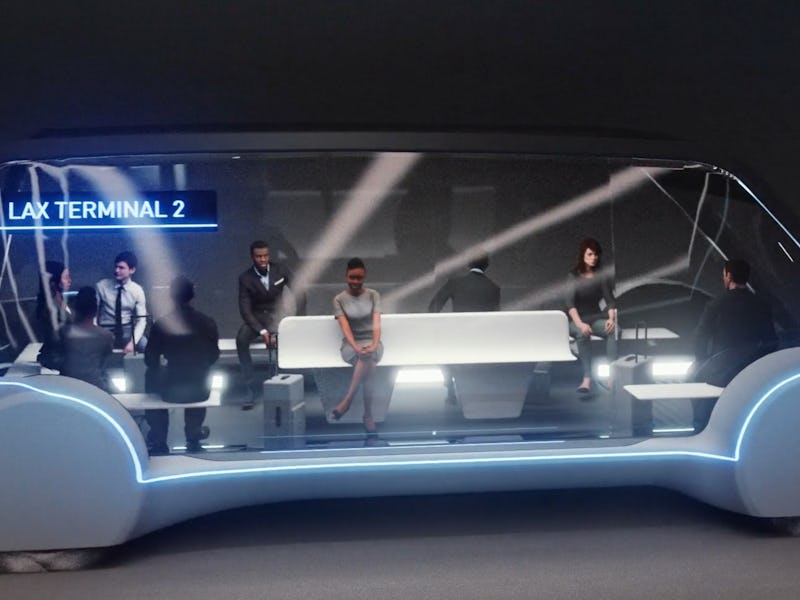Elon Musk: Boring Co Loop "Will Crush" Subways in Throughput, Convenience
Ditching skates, he says, will yield numerous benefits.

Elon Musk took to Twitter on Monday to push back against the criticism that the Boring Company’s new approach to Loops — the transportation tunnels demonstrated in a side-by-side video on May 23 — would be far less efficient than conventional subways. The company has tweaked its approach to operationalizing their tunnels a few times, most recently deciding to ditch the system of skates it used in a demo of its first operational prototype last December.
In response to a question about why the company decided to ditch the skates and simply pave the roads, he responded that “this is simple and just works,” meaning it might not be incorrect to infer that sleds are not simple and they don’t just work.
The update drew some prominent criticism, notably from tech evangelists like Benedict Evans, a prominent venture capitalist at the famous firm Andreessen Horowitz: “Now imagine if the car was big enough to carry dozens of people, and you linked a bunch of them together, and ran a regular service along lines that linked dozens or hundreds of locations around the city,” Evans commented in this tweet on May 24. “How is putting a car through a tunnel more efficient than a train?”
It’s a fair question, to which Musk responded by suggesting that, if you build enough tunnels, and cars or other vehicles could switch between them automatically, the systems that The Boring Company is exploring would ultimately be more efficient.
“Avg speed of NY Subway is actually 17mph. TBC loop can run at 155mph with 16 pax autopods passing every second, routing automatically between tunnels to their destination,” Musk’s response reads. “That’s 57,600/hour/lane & you can build dozens of lanes. Will crush any subway in throughput & convenience.”
Being able to construct smaller, cheaper transit tunnels is still an important innovation, and the massive tunnels needed to accommodate multi-passenger subways is also incredibly inefficient, particularly in New York City, where high real estate costs, contractor patronage, and other factors mean that the cost of tunneling can top $2.5 billion per mile.
The Boring Company, by contrast, claims to have reached a cost per mile of just $10 million. This comparison is not quite apples-to-apples, either — as City Lab noted at the time, it’s not clear whether this cost included labor, which accounts for something like 30 to 40 percent of tunneling costs — or the land used. But even if it didn’t include those factors, a $50 or even $100 million per mile tunnel would still be a remarkable improvement. Increasingly — and as the boring in the name suggests, The Boring Company is presenting itself as a tunneling company, not a maker of futuristic vehicles that it is often understood to be.
Of course, as is bound to happen at literally any mention of the “NY Subway,” transit wonks still descended to pick apart Musk’s claim anyway, including some who pointed out that passengers might not be able to stomach a tunnel’s curves at those high speeds.
On the other hand, if you can build exponentially more tunnels, the twists and turns municipal planners need today might not be necessary, either.